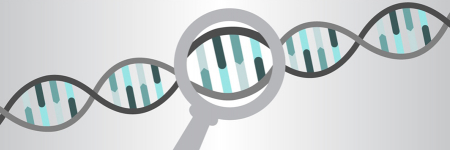
The modern face of genomic medicine
Genomics England’s new PanelApp is set to encourage shared knowledge and accelerate progress in whole genome sequencing analysis

Progress for personalised cancer therapies
Thanks to a wave of research projects, genomics is beginning to unravel the complexities of cancer and guide treatment for patients

Immortality, regenerative medicine, and the origin of death
Over the past century, huge advances have been made in bioengineering. But what can genomics bring to the table?

It's complicated: genomics, obesity and diabetes
Obesity and related conditions are a primary concern for the NHS, and genomic discoveries are changing attitudes to prevention and treatment

The growing importance of genomics for rare disease
Genomic technologies are paving the way for new diagnoses, treatments and therapy for patients with rare and ultra-rare disease

Genomics and the trouble with 'N of 1' trials
Randomised controlled trials are a rigorous way to identify cause and effect, but when it comes to rare genomic variants, connections can be hard to detect

Destined for fitness? The genetic influences on exercise
Studies have identified genes that can influence a person's exercise performance and response, as well as their propensity for injury

Novel 'virotherapy' shows promise for skin cancer treatment
Modified virus known as T-vec mounts dual attack on cancer cells

Unexpected genomic findings: who wants to know?
A ground-breaking survey on health professionals, researchers and the public's attitudes towards genomics raises some important questions

Gene therapy moves towards the mainstream
While still in their infancy, gene therapy techniques could hold great promise for patients with rare diseases

CRISPR: From 'silly idea' to miracle cures?
Editing a person's genome is a high-stkes proposition. Dr Alain Li Wan Po looks at the science behind it and the ethical issues at play

Detecting Down syndrome with genomics
A major US study has shown that non-invasive prenatal testing performs better than invasive methods, but what about the UK?


